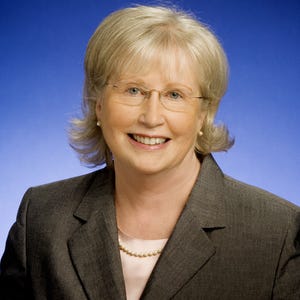TN bill would ban teaching 'religious doctrine' until high school
No Tennessee public school course could include anything deemed "religious doctrine" unless the course is taught in 10th, 11th or 12th grade if a newly proposed bill becomes law.
The bill from Rep. Sheila Butt, R-Columbia, comes on the heels of complaints from some parents in several communities as to what their children are learning in middle school about Islam.
"I think that probably the teaching that is going on right now in seventh, eighth grade is not age appropriate," Butt said Friday afternoon. "They are not able to discern a lot of times whether its indoctrination or whether they're learning about what a religion teaches."
Parents in Williamson County, Maury County and several other areas have complained about information contained in courses related to world history. Some, like U.S. Rep Diane Black, R-Tenn., argue the teachings border on indoctrination.
Tennessee education officials and teachers recently argued courses were appropriate and based on secular fact during a discussion of the curriculum with The Tennessean. They acknowledged students might learn the Five Pillars of Islam or read from religious texts, but that information is used to provide historical context about the influence the religion had on regions of the world.
"The reality is the Muslim world brought us algebra, 'One Thousand and One Nights,' and some can argue it helped bring about the Renaissance," Metro Nashville PublicTN bill would ban teaching 'religious doctrine' until high school:
Montana’s new school choice program is scheduled to launch in January, but already it’s running into constitutional problems. Proposed regulations don’t allow faith-based schools to participate in the program, which is discriminatory and unconstitutional, one attorney says.

photo by wikimedia commons
Potential regulations for Montana’s new school choice program would unconstitutionally ban religious schools from participating, an attorney says.
“They’re interpreting their own constitution to require these rules, but they’re incorrectly interpreting their constitution,” said Erica Smith, a lawyer at the Institute for Justice.
IJ often helps lawmakers draft school choice bills, and it frequently intervenes successfully in anti-choice lawsuits on behalf of parents wishing to participate in school choice programs.
After the school choice bill became law last year, the state’s Department of Revenue was tasked with hammering out the details.
The proposed regulations would bar schools from participating in the program if they’re “owned or controlled in whole or in part by any church, religious sect, or denomination.”
The proposed regulations also note schools are barred if their accreditation comes from a faith-based organization.
“This is the first time I’ve seen this happen,” said Michael Chartier, state programs and government relations director at the Friedman Foundation for Educational Choice. “If the Legislature wanted to exclude private schools, I would argue that’s not a good idea, but that’s the Legislature’s prerogative. This goes outside of what the legislative intent was. If the Legislature wanted to do that, they could have done that, but they deemed it OK. It shouldn’t be the Department of Revenue’s prerogative, to essentially make laws for the state of Montana.”
Republican state Sen. Kristin Hansen, who supported the bill, said the department was out of bounds.
“It’s the opposite of the intent of the legislation,” she said. “When we drafted the bill, we intentionally drafted a substantial definition of who qualified, so there wouldn’t be any questions about who would be eligible. I think the department has exceeded its Banning religious schools from choice program could be illegal



